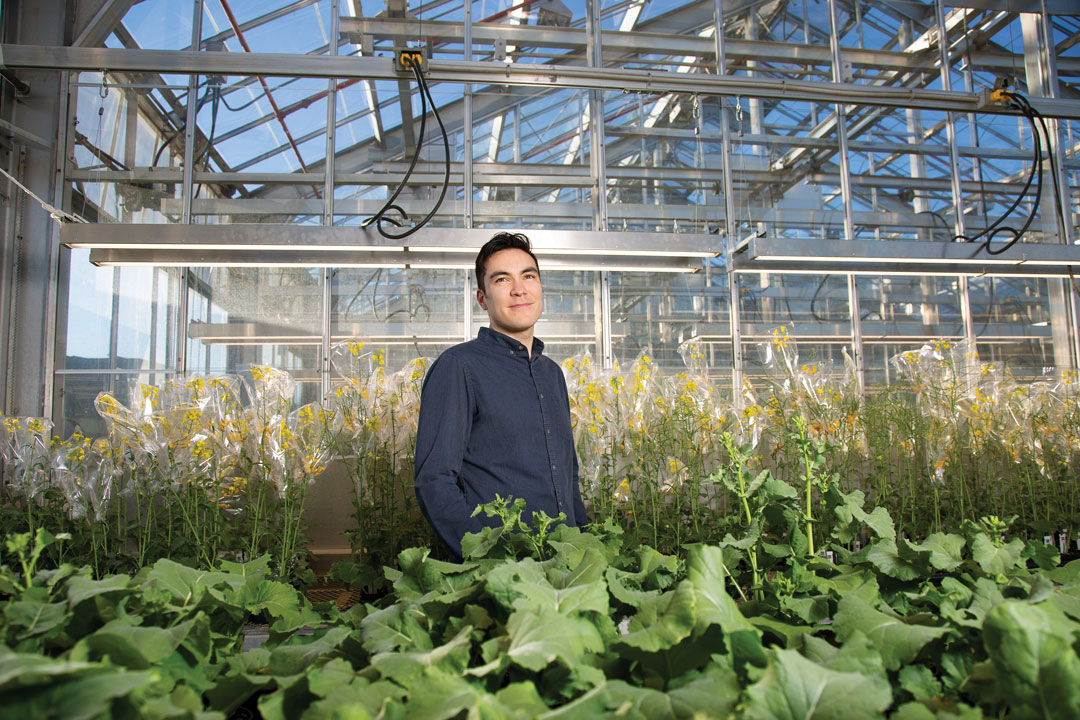INROADS IN THE INDO-PACIFIC
BY GEOFF GEDDES
In February, the federal government created the new Canada Indo-Pacific Agriculture and Agri-Food office (IPAAO) in Manila, the capital city of the Philippines. The facility is intended to expand trade opportunities in the region. “The creation of the IPAAO is unprecedented for Canada’s agriculture sector,” said an Agriculture and Agri-Food Canada (AAFC) spokesperson. “It is the first time the sector will have a regional office dedicated to the Indo-Pacific region as a whole under Canada’s Indo-Pacific Strategy.”
“We have long felt Canada could do better in those markets if we invested the time and money, especially in regard to human resources,” said Michael Harvey, executive director of the Canadian Agri-Food Trade Alliance (CAFTA). “In that region, personal relationships are central to success, and our country has tended to take a fly-in, fly-out approach. Having a permanent presence in Manila will support us in building bonds, opening markets and heading off non-trade barriers.”
Such barriers can develop when a country’s regulatory system is not accepted by another nation. To have Canada’s trade staff work closely with their counterparts in key markets, the government hopes to avoid misunderstandings that might lead to export problems.
To help ensure success in the region, CAFTA and AAFC staff co-chair industry working groups that align the new office’s efforts with the mandates of the Canadian government and the Canadian supply chain “It is vital that we have government and industry in sync,” said Harvey. “Working groups ensure constant communication so we aren’t operating in silos or missing chances to collaborate.”
As part of Canada’s efforts in the Philippines, office personnel will engage in ongoing trade talks with major market players such as India, Indonesia and the Association of Southeast Asian Nations. “Our people on the ground are gathering information and feeding it into trade talks,” said Harvey. “These staffers really know the local markets, and that is useful intelligence for our negotiators.”
“In this day and age where we face strong competition from other high protein suppliers like the U.S. and Australia, we need to be heavily involved in trade promotion,” said Dean Dias, CEO of Cereals Canada. “The Indo-Pacific has been a key region for the trade of Canadian cereals. Markets like Japan, Indonesia, Bangladesh and India are growing and highly significant.”
The importance of this move to Manila cannot be overstated, said Dias. “We’d like to thank the federal government for taking a bold step. This office sends a strong signal around Canada’s commitment to strengthening trade relationships in the Indo-Pacific. In doing so, we will forge new partnerships to aid in maintaining and building markets for Canadian agriculture.”
“Expanding to the Philippines comes in the context of Canada’s broader strategy to nurture peace and stability in the region,” said Harvey.
The AAFC spokesperson noted the Comprehensive and Progressive Agreement for Trans-Pacific Partnership (CPTPP) entered into force for Canada in December 2018. “Since then, Canada has seen a gradual increase in ag exports to Indo-Pacific countries,” they said. “The IPAAO complements the work of trade commissioners in the region by helping Canadian agri-businesses capitalize on the many advantages of the CPTPP, enhancing their competitiveness in the world’s fastest growing region.”







Comments